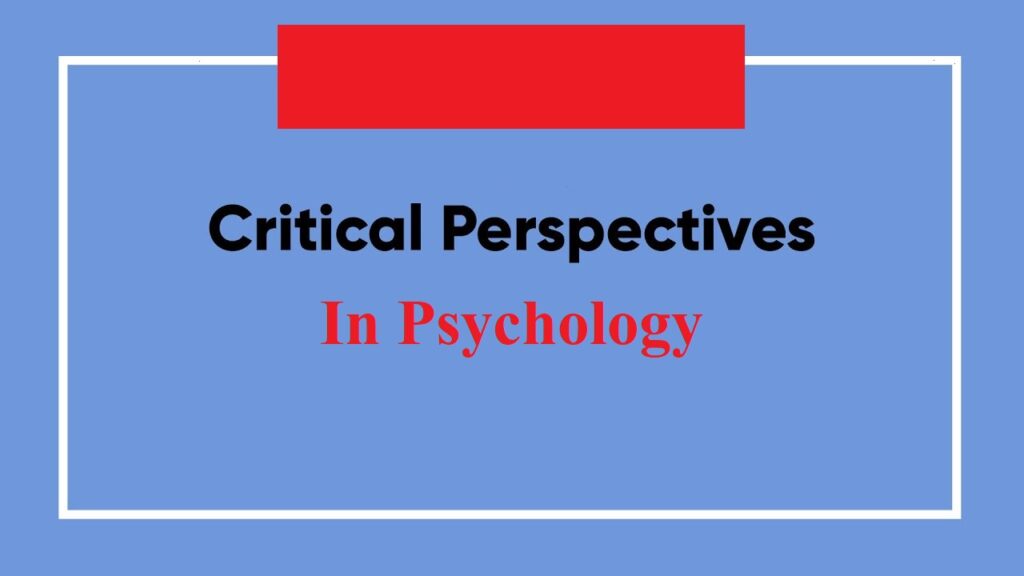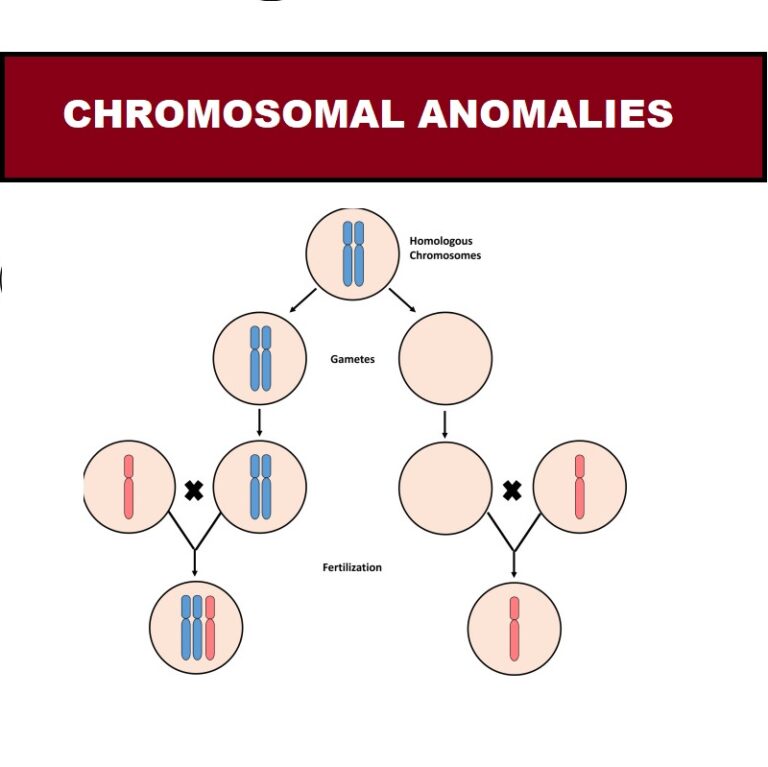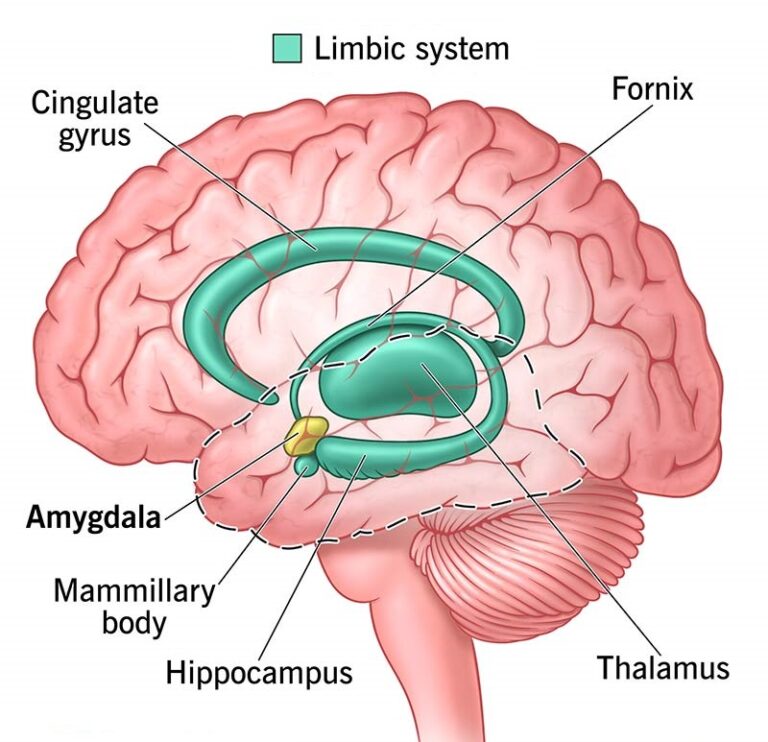
The critical perspective in psychology is an intellectual paradigm that challenges the traditional assumptions, methods, and power dynamics embedded in mainstream psychological theories and practices. This perspective aims to deconstruct dominant ideologies, uncover socio-political influences on human behavior, and advocate for transformative practices that address inequities.
Foundations of the Critical Perspective
The critical perspective in psychology is rooted in critical theory, which originated from the Frankfurt School of Social Research in the early 20th century. Scholars like Max Horkheimer, Theodor Adorno, and Herbert Marcuse critiqued the positivist and capitalist underpinnings of modern science and social systems, arguing that these perpetuate systems of oppression and inequality.
In psychology, the critical perspective emerged as a response to the reductionism and decontextualization of mainstream paradigms like behaviorism, positivism, and cognitivism. It emphasizes the importance of understanding psychological phenomena within historical, cultural, political, and economic contexts.
Core Tenets of the Critical Perspective
- Critique of Power Dynamics: Psychological knowledge is not neutral; it reflects power relations and often perpetuates existing hierarchies.
- Contextualization: Human behavior must be understood in its socio-political and cultural contexts.
- Emancipation: The goal of psychological research and practice should be to empower individuals and communities.
- Interdisciplinarity: Integrating insights from sociology, anthropology, political science, and other disciplines to enrich psychological understanding.
Table 1: Comparing Traditional and Critical Perspectives in Psychology
| Aspect | Traditional Paradigm | Critical Perspective |
|---|---|---|
| View of Knowledge | Objective, universal truths | Contextual, influenced by power and ideology |
| Methods | Empirical, quantitative | Mixed methods, including qualitative approaches |
| Focus | Individual behavior and cognition | Structural and systemic influences on behavior |
| Goal | Prediction and control | Empowerment and social change |
Applications of the Critical Perspective in Psychology
1. Clinical Psychology
Traditional clinical practices often pathologize individuals without addressing systemic factors contributing to mental health issues. The critical perspective seeks to redefine mental health by emphasizing resilience, community support, and structural change.
- Example: Critical clinical psychology critiques the medicalization of distress (e.g., overdiagnosis of depression) and promotes community-based interventions.
- Research Insight: Summerfield (2001) argued that Western psychiatric models often impose culturally insensitive frameworks on diverse populations, perpetuating harm rather than healing.
2. Social Psychology
The critical perspective highlights the role of ideology and power in shaping social behavior. It critiques experiments like Milgram’s obedience studies for ignoring participants’ historical and social contexts.
- Example: Exploring how media narratives perpetuate stereotypes about marginalized groups.
- Research Insight: Durrheim et al. (2011) demonstrated how discourses of prejudice are deeply embedded in historical and societal power structures.
Table 2: Examples of Critical Perspectives in Psychology
| Field | Critical Application | Example |
|---|---|---|
| Clinical Psychology | Challenging pathologization | Advocacy for trauma-informed care |
| Social Psychology | Examining systemic bias | Analysis of racial bias in policing practices |
| Developmental Psychology | Critiquing universal developmental milestones | Studying culturally specific parenting norms |
Strengths of the Critical Perspective
1. Holistic Understanding
The critical perspective accounts for the interplay between individual, social, and structural factors, offering a more comprehensive view of psychological phenomena.
- Example: Research on academic achievement considers systemic inequities like socioeconomic status and racial discrimination.
2. Advocacy for Marginalized Groups
By centering the experiences of marginalized communities, the critical perspective challenges oppressive practices and promotes equity.
- Example: Campaigns advocating for inclusive mental health services for LGBTQ+ individuals.
3. Methodological Diversity
The integration of qualitative and participatory methods enables richer and more contextualized insights.
- Example: Using participatory action research (PAR) to co-develop interventions with communities.
Critiques and Challenges of the Critical Perspective
1. Perceived Lack of Objectivity
Critics argue that the critical perspective’s emphasis on subjectivity undermines the scientific rigor of psychology.
- Counterargument: Objectivity is a myth, as all research is influenced by the researcher’s values and assumptions.
2. Complexity and Ambiguity
The focus on systemic and structural factors can make it challenging to operationalize concepts and design interventions.
- Example: Defining and measuring constructs like “social justice” or “empowerment.”
3. Resistance from Mainstream Psychology
The critical perspective often faces resistance from mainstream institutions that prioritize positivist approaches and funding models.
Table 3: Strengths and Limitations of the Critical Perspective
| Aspect | Strength | Limitation |
|---|---|---|
| Holistic Understanding | Accounts for systemic and structural factors | Complexity in operationalization |
| Advocacy | Promotes social justice and equity | Resistance from mainstream paradigms |
| Methodological Diversity | Enables rich, contextual insights | Perceived lack of scientific rigor |
Contemporary Relevance of the Critical Perspective
The critical perspective is increasingly relevant in addressing global challenges like climate change, systemic racism, and mental health crises. It provides a framework for psychologists to engage in transformative work that challenges injustices and promotes collective well-being.
1. Environmental Psychology
Critical perspectives explore how capitalist systems contribute to environmental degradation and psychological distress.
- Example: Studying the mental health impacts of climate anxiety among youth activists.
2. Global Mental Health
The critical perspective critiques the imposition of Western psychiatric models on diverse cultural contexts, advocating for culturally sensitive approaches.
- Research Insight: Patel et al. (2018) emphasized the importance of integrating traditional healing practices into mental health interventions in low-income countries.
Conclusion
The critical perspective in psychology offers a powerful framework for interrogating the socio-political dimensions of psychological knowledge and practice. By challenging power dynamics, emphasizing context, and advocating for social justice, it enriches our understanding of human behavior and promotes transformative change. However, its implementation requires navigating methodological complexities and resistance from traditional paradigms. As the world grapples with interconnected challenges, the critical perspective’s emphasis on systemic change and collective well-being underscores its enduring relevance.
References
- Durrheim, K., Hook, D., & Riggs, D. W. (2011). Race and racism. In D. Hook (Ed.), Critical Psychology. UCT Press.
- Horkheimer, M., & Adorno, T. W. (1944). Dialectic of Enlightenment. Stanford University Press.
- Lincoln, Y. S., & Guba, E. G. (1985). Naturalistic Inquiry. Sage Publications.
- Patel, V., Saxena, S., Lund, C., et al. (2018). The Lancet Commission on global mental health and sustainable development. The Lancet, 392(10157), 1553-1598.
- Summerfield, D. (2001). The invention of post-traumatic stress disorder and the social usefulness of a psychiatric category. BMJ, 322(7278), 95-98.







